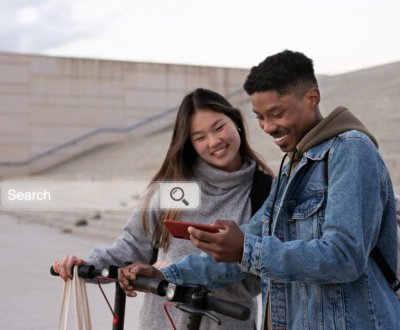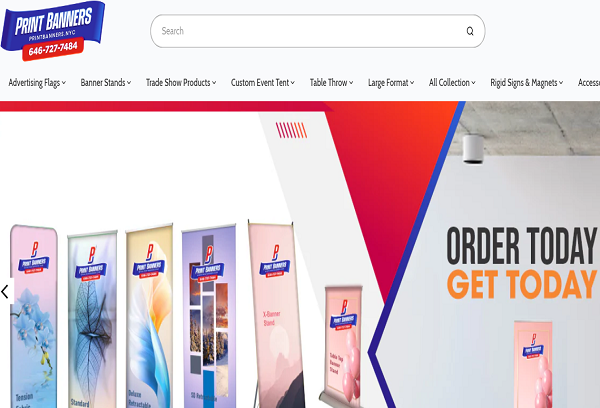How ChatGPT Conducts Local Searches
- May 3, 2025
- Local
As AI tools continue to advance, ChatGPT is emerging as a strong competitor in the local search space. While Google still reigns supreme in local search, ChatGPT has made impressive strides, particularly since its integration with Microsoft Bing’s search index last fall. Now, ChatGPT delivers local search results with enhanced accuracy, but businesses need to understand how it works to ensure visibility in this evolving landscape.
Key Changes in ChatGPT’s Local Search Capabilities
The most significant update to ChatGPT’s local search capabilities came with its integration into Bing’s search index. Previously, ChatGPT was limited in the scope of its search results, but now it taps into Bing’s extensive database of indexed content, organizing and displaying the results based on its own algorithm.
However, it’s important to note that ChatGPT doesn’t fully mirror Bing’s results. In fact, while there’s overlap between the two platforms, ChatGPT doesn’t simply repurpose Bing’s listings. It pulls from a mix of web content, including sources like city guides, business websites, and user-generated platforms such as Yelp and Reddit.
Key Differences in Local Search Results
For example, when searching for dry cleaners in Red Hook, Brooklyn open on Sundays, ChatGPT may return different results compared to Bing. In one case, it may feature Bridgestone Cleaners at position 2, whereas Bing lists it lower down. This discrepancy shows that ChatGPT is organizing results based on factors beyond just Bing’s rankings.
ChatGPT does not pull local profile data from platforms like Bing Places for Business, nor can it access features like reviews from Facebook or Yelp directly. While this means that businesses listed on these platforms may not appear in ChatGPT’s local results, their visibility in Bing search results will still play a key role in their chances of being cited by ChatGPT.
How ChatGPT Selects Local Businesses
Unlike traditional search engines that rely heavily on structured data and location-based algorithms, ChatGPT has its own selection criteria. Here’s how it works:
- Initial Pass: ChatGPT looks through 20-30 of the top web results from Bing.
- Deeper Dive: It narrows down the results to 5-8 sources that appear the most promising based on criteria like relevance and trustworthiness.
- Selection Filter: ChatGPT focuses on websites with clear and verifiable information, such as star ratings, business hours, and addresses.
For example, a Yelp page with a high rating or a trusted business website will likely appear in ChatGPT’s local results. On the other hand, unverified or low-quality sources—like forum posts—are excluded.
ChatGPT’s Approach to Local Results: The Role of Maps
You may have noticed that when ChatGPT returns local search results, they often look similar to a local pack seen in Google or Bing, complete with a map and a carousel of business listings. However, this map is not generated by ChatGPT itself. It is part of the interface layer (OpenAI’s front end) that displays the results visually. ChatGPT only provides the data—names, addresses, ratings—but the map is powered by a separate integration layer.
How Local Businesses Can Optimize for ChatGPT
If you’re a local business aiming to boost your visibility in ChatGPT search results, here are some practical steps:
- Maintain an Accurate, Detailed Website
Ensure your website is updated with clear, structured information, including contact details, hours of operation, and customer reviews. Structured data (like schema.org markup) can help signal to ChatGPT that your website is trustworthy and authoritative. - Claim and Optimize Your Bing Places Listing
While ChatGPT doesn’t directly reference Bing Places data, Bing Places for Business plays a key role in the organic results ChatGPT references. Claiming and optimizing your listing ensures your website appears more often in the search results that ChatGPT pulls from. - Get Listed on Reputable Review Platforms
Platforms like Yelp, Facebook, and Google Reviews remain important for your online visibility. Ensure your profiles are accurate and encourage satisfied customers to leave reviews. Positive reviews on high-visibility platforms increase the likelihood that ChatGPT will feature your business. - Earn Links from Local Directories and Press
Local directories, blogs, and news outlets can be valuable sources for ChatGPT. Focus on earning links from these reputable, location-based sites. Being featured in “best of” lists or local chambers of commerce can boost your credibility. - Leverage Consistent Local SEO Practices
As with any local SEO strategy, ensure your business’s name, address, and phone number (NAP) are consistent across all platforms. This consistency helps ChatGPT (and other search engines) understand your business and increase your chances of appearing in local results. - Offer Unique, Searchable Content
Creating helpful, relevant content is a great way to stand out. For example, publishing blog posts on topics related to your industry can make your business a go-to resource. ChatGPT is more likely to feature pages that include useful, original content. - Monitor What’s Ranking on Bing
Keep an eye on what types of businesses are ranking in Bing’s organic results for queries relevant to your industry. This will give you a clear picture of what ChatGPT is likely to pull from for similar searches.
Conclusion: Making Your Business Easy for Bing and ChatGPT
To make your business visible in ChatGPT’s local search results, focus on making it easy for Bing to understand and index your website. The key is to ensure your online presence is structured, verifiable, and optimized across various platforms.
At Earn SEO, we specialize in driving targeted local traffic to your business. As Local SEO Experts in New York, we focus on enhancing your online presence to ensure your business ranks higher in search engine results, including newer platforms like ChatGPT. With proven strategies and a personalized approach, we help you stay ahead of the competition.
Ready to improve your local search rankings? Contact us today and start optimizing for success!
Earn SEO was established in 2011 by Devendra Mishra, a highly educated professional with varied training and experience. Mr. Mishra is responsible for business development, attracting new Earn SEO partners, and interacting with clients, the media and press, and acting as Brand Ambassador.
Devendra Mishra
Founder






































